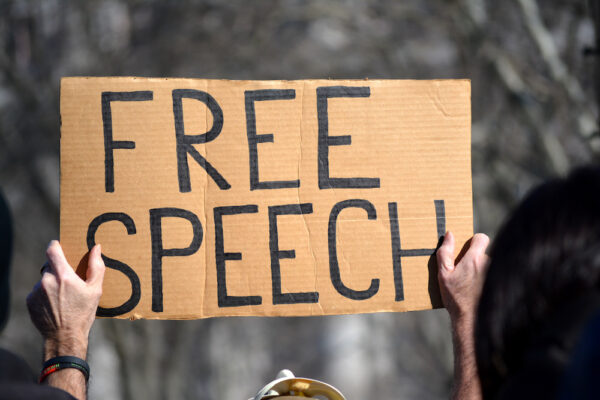RAPIDES PARISH — The ACLU of Louisiana, Cato Institute, and Foundation for Individual Rights and Expression have filed an amicus brief in the United States Court of Appeals for the Fifth Circuit that seeks to hold Rapides Parish Sheriff’s Office accountable for violating Waylon Bailey’s free speech rights after he made a joke on Facebook comparing the COVID-19 pandemic to a zombie apocalypse. Following the Facebook post, the sheriff’s office assigned a detective to the case who showed up to Bailey’s home with a SWAT team to arrest him for his joke.
The lawsuit is part of this group’s long tradition of protecting free speech, and works to hold law enforcement agencies accountable for abuse of power — government officials are not above the law; just as citizens must follow the law, the government must follow the Constitution.
“It is absurd that a law enforcement agency believes it has the power to show up to someone’s doorstep and arrest them for a joke they made on the internet,” said ACLU of Louisiana Legal Director Nora Ahmed. “It’s not a crime to make a joke on the internet. And it can’t be, because the First Amendment protects speech in cyberspace just as much as in physical spaces. But overzealous local officials don’t always honor that constitutional guarantee, rendering the grant of qualified immunity by the lower court here erroneous.”
During the early days of the COVID-19 pandemic, Waylon Bailey was occupying his time on the internet. After he saw a friend make a coronavirus joke on Facebook, Bailey posted his own joke. Using satirically over-the-top-language and emojis, he compared the COVID-19 situation to a zombie apocalypse, joking that the local sheriff’s office would soon be shooting “the infected.” Few people saw the post, and no one was alarmed by it, but members of the Rapides Parish Sheriff’s Office stormed upon Bailey at his home with guns drawn, arrested him, and took him to jail claiming his joke violated a state anti-terrorism law, though when presented with the allegations the district attorney dropped the case.
Even though arresting Bailey was plainly an overreaction and trampled his free speech rights, the lower court refused to hold the sheriff’s office accountable. Instead, when Bailey brought a civil rights lawsuit, the sheriff and detective responsible for Bailey’s arrest were granted qualified immunity. To add insult to injury, the court also said that Waylon didn’t have any free speech rights to make a joke in the first place, relying on long-discredited World War I-era cases about opposing the draft during wartime.
The appeal and amicus brief in support, filed in Bailey v. Iles, seek to overturn the lower court’s erroneous ruling.
###
Stay Informed
Sign up to be the first to hear about how to take action.
By completing this form, I agree to receive occasional emails per the terms of the ACLU’s privacy statement.
By completing this form, I agree to receive occasional emails per the terms of the ACLU’s privacy statement.

